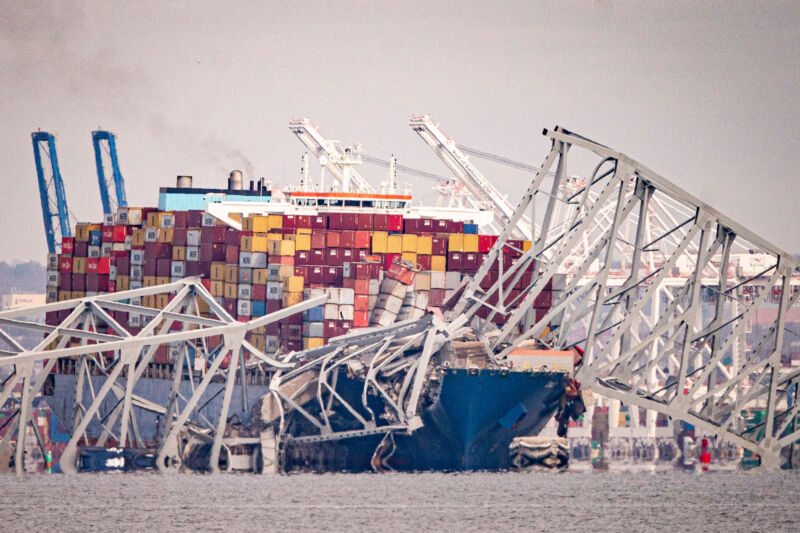Bridge collapses put transportation agencies’ emergency plans to the test

Enlarge / The Dali container vessel after striking the Francis Scott Key Bridge that collapsed into the Patapsco River in Baltimore on March 26. The commuter bridge collapsed after being struck by a container ship, causing vehicles to plunge into the water and halting shipping traffic at one of the most important ports on the US East Coast. (credit: Al Drago/Bloomberg via Getty Images)
A container ship rammed into the Francis Scott Key Bridge in Baltimore around 1:30 am on March 26, 2024, causing a portion of the bridge to collapse into Baltimore Harbor. Officials called the event a mass casualty and were searching for people in the waters of the busy port.
This event occurred less than a year after a portion of Interstate 95 collapsed in north Philadelphia during a truck fire. That disaster was initially expected to snarl traffic for months, but a temporary six-lane roadway was constructed in 12 days to serve motorists while a permanent overpass was rebuilt.
US cities often face similar challenges when routine wear and tear, natural disasters or major accidents damage roads and bridges. Transportation engineer Lee D. Han explains how planners, transit agencies, and city governments anticipate and manage these disruptions.


